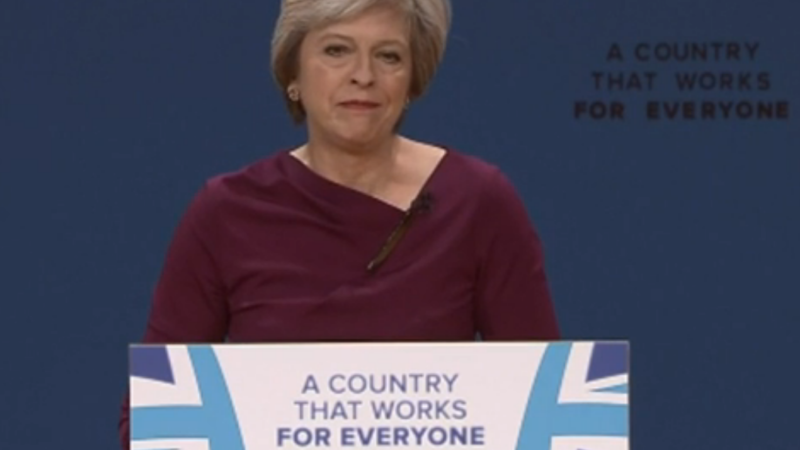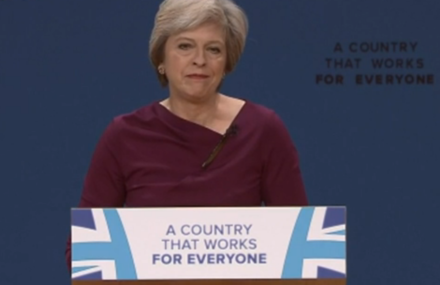

This has been a difficult few days for our Labour Party. With significant gains in local elections, Theresa May might feel confident calling for a general election this June nearly one year after the EU referendum. The Conservative Party enjoys a double digit lead in the polls over Labour and what remained of public support for UKIP is now facing collapse, to the extend that they bizarrely fled their own press conference. Thankfully, our losses were not as great as some had predicted. No one should underestimate the hard work and determination of Labour councillors past and present with our supporters to take on the Tories – and not least ourselves.
We have three more reasons to be cheerful that June could become the end of May:
The economy
The Tories score best on the economy by promising voters that their money is in safe hands. This issue is a cornerstone of their support – and to lose public trust could be a game changer.
Since 2010, the Tories have vowed to reduce the national debt and deficit, for which they blamed Labour but, more than six years later, the national debt has actually grown to more than 80 per cent of GDP – higher than at any time under New Labour. As chancellor, George Osborne borrowed more in his half decade than Gordon Brown did over ten years.
Our economic recovery remains fragile and lower unemployment figures has been managed in part through a surge in low skilled – and often low paid – work and zero hour contracts since the Tories took power. We in Labour need to grasp that the Tories are vulnerable on the economy given their record – and they cannot assume voters will give them a free pass. Labour needs to hammer home the message that May’s rhetoric isn’t Britain’s reality.
Immigration
David Cameron promised to reduce net migration to the tens of thousands – and May renewed this pledge on Monday. Voters supported the Tories over other parties as best positioned to control the country’s borders.
But, again, their record does not support the rhetoric. Since 2010, net migration has hit record highs – and has been much higher than at any point under New Labour. This is a straightforward point: that Tory talk about less migration, but the reality is the opposite. As my research revealed, the only drop in the latest migration statistics may be down to more British citizens leaving and not coming back. Net migration counts everyone coming in or out of the UK the same way – 1,000 professional workers are treated no differently than 1,000 students. This is poor management.
But net migration also includes British citizens and we should say this: any government’s immigration strategy that can be met by encouraging more UK citizens to leave is not worth having. We need to let this fact get in the way of Tory rhetoric. Four out of five voters don’t believe the Tories will do what they say on immigration. We need to remind them again and again letting the Tory record speak for itself.
And we need two more things. First, we should prioritise reducing impacts of migration through a migration impacts reduction fund. Tories confuse having fewer migrants with having less impact from migration. They are wrong. Fewer migrants in A&E is more likely to mean fewer doctors than patients – increasing waiting times still higher. We need to get this message heard and loudly.
Secondly, we need to be engaged with the public. Let’s promise to launch a new advisory group on citizenship that can get people talking what being a British citizen means for them. We’ve been there before in 2004 leading to a citizenship test sat over two million times, but without a single consultation or focus group to see whether it really has helped support integration. My research has shown it hasn’t and may even be having the opposite effect. Let’s bring the public in to rethinking the chaotic, complex and divisive immigration rules made in their name that have done little to win confidence and much damage and distrust. We can do better. Let’s relaunch an impacts reduction fund that the Tories cut and a national conversation on citizenship that the Tories seem afraid to have.
The ghost of 2015
The Tories are also haunted by a ghost of 2015 – in the form of possible prosecutions of 30 or more Conservative MPs and election agents. If only one investigation of a sitting Tory MP proceeded to a conviction then this could be highly damaging.
It surely does not help to have the shadow of possible prosecutions hanging over Tory candidates during a national election campaign. This is all the more damaging for May because Nick Timothy – one of her closest advisers in a small, tightknit circle – has been alleged to be deeply involved across multiple constituencies, although he denies any impropriety. We need to remind voters that May’s snap election is a knee-jerk response to possible prosecutions of her party’s members for breaking election rules to win seats. This should not be rewarded by voters. Especially when wrongdoing is being denied.
In short, May’s big lead rests on shaky foundations of a questionable record across key voter concerns like the economy, immigration and possible Tory Party charges relating to the last general election. Labour is already quickly closing the gap. A Brexit divorce bill of €100 billion won’t help the Tories either. May’s party is more vulnerable than many think – even on their key issues of the economy and immigration.
Getting the message out won’t win an election by itself. But failing to exploit gaping holes in the Tory’s policy armour won’t make victory any easier.
Thom Brooks is head of Durham Law School and author of Becoming British: UK Citizenship Examined (Biteback 2016)




More from LabourList
Scottish Labour leader Anas Sarwar to call on Starmer to resign
Two affiliated trade union leaders call on Starmer to resign as Prime Minister
‘Mor-gone but not forgotten’